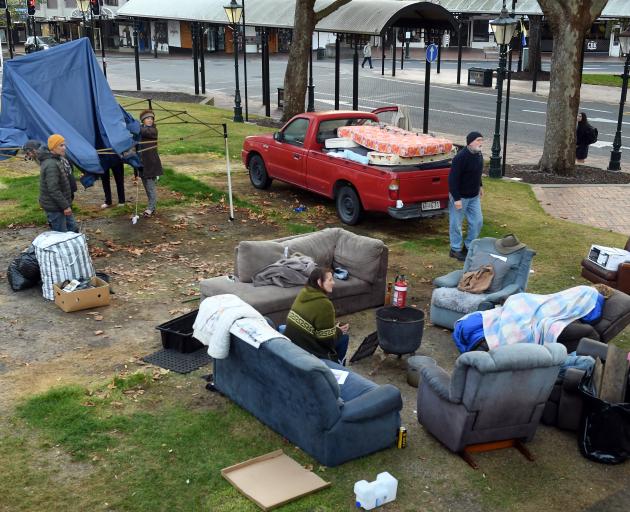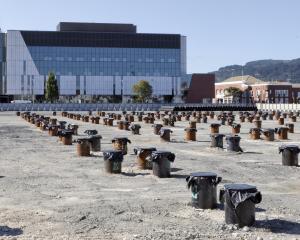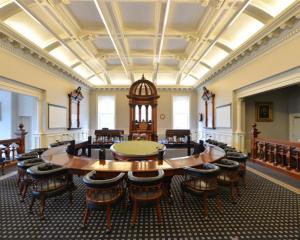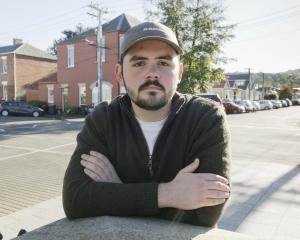Patience helped to produce a peaceful end to the two-month Octagon occupation in Dunedin, the city’s mayor says.
Opponents of Covid-19 vaccine mandates had been told to take down their tents and other structures by noon yesterday or be trespassed.
They met the deadline after receiving a formal warning from the Dunedin City Council on Thursday last week.
Dunedin Mayor Aaron Hawkins said yesterday afternoon the council had shown a lot of patience to the protesters and the peaceful conclusion to their occupation provided some validation of the approach.
The occupation had essentially run its course when the Government lifted most mandates — and the council ended its own vaccine pass requirements — early last week, Mr Hawkins said.
The council had worked with police and did not rush in to remove the protesters, allowing them time to "wind down".
Police had been prepared to take enforcement action, if this had been necessary, Mr Hawkins said.
He was relieved it did not come to that.
Protest was a legitimate activity in the city centre, but full public access to the Octagon Reserve had to be restored, he said.

One protester cried "freedom" and the group gave a round of applause, before dispersing.
Thomas McAlpine, from Dunedin, said he was there to promote medical choice.
Some anti-vaccine messages, such as one about magnetic properties, had been ridiculous, but people needed to be aware of their rights related to medical treatment, he said.
"We’ve got to be very careful about how much government control we let into our lives."
One of the leading figures associated with the Dunedin protest, Arthur Taylor, said it was the right time to pack up.
"We've made our point," he said.
"It's better to leave on a high note than to have a confrontation and have people dragged off by the police."
Mr Taylor said the protest had not been disruptive and people had been allowed free access to the Octagon.
The protest movement had been good for civil rights in New Zealand, he said.
Occupation of the Octagon had ended, but protest would continue in other ways, Mr Taylor said.
The letter of warning to the protesters said they were in violation of the Reserves Act 1977 and the city’s reserves and beaches bylaw by occupying the area and putting up tents, lighting fires and erecting signs.
Mr Hawkins said reports of abusive language from protesters were not helpful for the cause they were promoting, but the occupation had been largely peaceful.

"What we need to be focusing on is healing the divisions that have opened up in the community over these sorts of issues, rather than ... entrenching them further."
Health officials have argued Covid-19 restrictions have been necessary because of the infectiousness of the virus and to prevent the health system from being overwhelmed by a high caseload.












